|
Today is St. Valentine’s Day and the whole world seems to be absorbed in romantic love. If you have a sweetie, the world seems so bright and the day filled with promise. Not everyone, however, has a sweetie and the day can then seem so cruel. On Valentine’s Day we might feel more alone than on any other day of the year. Valentine’s Day should not be a day of sadness. It should be a day of love. Today, let us not focus on romantic love; instead let us focus on those we love – those who fill our lives with beauty and joy. Perhaps we might think of those who need our love, but are so hard to love. Perhaps today we might begin to lighten their load. Maybe we could show love to our friends and family. Love binds us one to another through millions of acts of l love and brings light to some of our darkest days. Love ties us to each other in this life and connects us through the generations. Today, let us act in love with purpose this Valentine’s Day.
1 Comment
When planning your end of life plan, you might want to include personal information for your obituary. This aspect of planning might have an unexpected impact on how you live or view your life once you begin thinking about what information you might want to include. You might include the name and birth and death dates of your mother and father. You might also include your date of birth. As it stands, this basic information might sound sterile. You might want to produce a more personal document. What about your life story? What about who you are? You might next begin by considering what kinds of other things you might want to have people remember about you. Consider looking at some achievements or important moments in your life you would want people to know about you. Death planning can be so heavy. You look squarely at your life and acknowledge that the you as we know you will one day no longer be. That is a huge shift in thinking and often once you acknowledge this, and begin planning your life will take on a more focused attitude. You might see your life more clearly and begin doing those things you have put off doing. Writing your obituary or providing information for your obituary is an interesting exercise. All it takes is you sitting down with a pen and paper or like me a laptop and begin to tell the story. If telling a story is too much, make a list of what you want remembered of you. There is no wrong way to do this. This process might help focus on what you find most important and you might see a pattern emerge about yourself. This process might just give you more insight into your daily life and your inner workings. As the other aspects of end of life planning, this process should enhance your life, not detract from it. Remember this is about things you love and your achievements. These things do not necessarily have to be worldly achievements; they just have to be those things you feel most proud of or things that have given you great joy. Just begin.
There is a TV commercial these days selling end of life insurance. The commercial claims that the average funeral costs over $8000. The true cost of an average funeral is closer to $10,000, which does not take into consideration the cost of burial. How have we come to a place where dying costs so much? How have we come to a place where we require people to hire a private entity? Makes me wonder how state governments who have imposed such a heavy burden think of the people they serve. They must either have no regard for the people, or they must think that their people are just not intelligent enough to fill out paperwork. My heart is so heavy for those who cannot pay the high price of death. Some must leave their loved one’s body behind for the local government to care for them. Some families go into debt just so that they can care for their loved one’s body in a manner they deem worthy. Some must make choices in death care that they would rather not make, just because the price is easier to manage. The industry seems to chug along with only those who see the destruction and corruption stand up and try to make a change. I think $10,000 is too much for an average cost for death. Do you? If you do, write your representatives on the State and Federal levels. Tell them what you think about this practice. The average cost is too high. The average cost leaves out so many of our fellow human beings. The average cost is too high, and absolutely unjust.
For the last few weeks, I have been grieving a monumental change in my daily life. I am not, nor are those close to me facing imminent death, but the loss feels monumental none-the-less. When I lived in Canada, my father loved going to my local grocery store, Fortinos every time Mom and he would come to town. My father waited almost five years before a fabulous grocery store, Joseph’s, opened in his own town. I remember vividly Dad taking my first born and me to Joseph’s. He loved store’s dedicated aisles to different ethnic groups, its produce and meat department. Joseph’s had a wide variety of unusual products. If needs be, you could purchase a pig’s head. I am not too sure what one does with a pig’s head, but I knew where you would need to go to purchase one.
When I moved here, I felt the loss of my dear grocery store, but I had Joseph’s. Through the years I shopped there regularly. When I need to make a Serbian dish, I could go there and know they would have the ingredients that a “regular” grocer would not carry. The store allowed a person to explore a variety of different ethnic cuisines. If you were adventurous, you could begin your culinary journey at Joseph’s. Then, about two weeks ago, I walked into Joseph’s. I noticed many shelves were empty. I could not purchase any canned tomatoes and the pasta isle looked like locusts had descended. I found what I needed, and then I went to check out only to find one checkout lane open. I had been there a just few days before. I had chatted with a butcher who told me a product I was interested in would always be in stock. It was not like I had been away for weeks. I felt a sinking feeling in my stomach. I went home and check out the Facebook page, rumors were swirling about its closing. I went into denial. It took me a week to get up enough nerve to ask someone at the store about the rumor. Then the news hit the papers. I spent time purchasing food that I could freeze or store. I bounced around denial, anger and bargaining for more than a week. Why would a store closing cause such a disruption? I have been through stores closing before. While that is often a sad time, I am not usually disturbed by it. Then it hit me. I am responsible for making sure family recipes remain part of the family. I am the one left standing who plans the feasts and prepares the food to create and maintain family tradition. Because of the family I married into, there are important ethnic recipes that I make. These often have components that the mainstream North American grocery store would not carry. I loved having a local store where I could go and get these so that I could keep the Serbian flavour in the family. The other aspect of the loss has to do with losing my father. Going there would remind me of him. I miss him. Losing this store reminds me keenly of the loss of my father. The closing reminds me of how much I have already lost, and how I have tried to maintain connection to those I love. This week, I have decided that since Joseph’s is breaking up with me, I need to see other stores. I am currently on the lookout for a new ethnic store. I have already looked about a bit, and I am planning in the next few weeks to check out more stores. I have come to accept the reality of my present circumstances and am moving forward. I will broaden my horizons and maybe I can find an even better shop that will meet my needs. Maybe I will take my friend up on teaching me how to ferment my own cabbage leaves. We will see. Sometimes it takes a while to sort through feelings before reaching acceptance. I have to say, I like living in acceptance more that the grief process, but the process often teaches me things I would not otherwise have seen or known. I will miss the convenience of Joseph’s and the memories I have of shopping there with Dad. Change is like a little death. We live through constant change on a daily basis. We move through these little changes – changes in the weather – changes in the way the light shines –changes in our outlook—changes in so many different ways. The small changes we take in stride. It is what we do. Parts of our lives, however, settled in becoming essential parts of our story. These things become so much a part of our lives that when change happens it unsettles us. We can mourn these changes. It is really an ok thing for us to do. Sometimes we get the message that we should not mourn changes. Those in our lives tell us that these changes are just a part of life, and so get over it. Sometimes people in our lives find witnessing mourning uncomfortable. Witnessing loss might remind them of their own grief or loss. Do not take their words to heart—take care of your own needs.
I remember talking to a social worker about September 11. I found it hard to manage the loss of the World Trade Center. I felt so stupid and heartless because I felt a loss of a building when so many actual people had died. The building had become so much a part of my story of living in New York, and my time with my husband, that the loss was so great for me. This woman worked with many children in New York following the attack. She told me that children in New York felt the same way I did about the loss of the building because the World Trade Center was like a person to them. Many New York children would nightly say goodnight the World Trade Center. The losses of the buildings were very personal for those children—and me. I was grateful for her words, and allowed myself to grieve the loss of the buildings, even if those around me did not understand. Sometimes, we just have to allow ourselves to grieve when we feel a loss, even the small losses or the unusual. Denying the loss does not help us move forward anyway. What does it hurt to acknowledge the change and mourn the way things were? Having done that we can move toward accepting the truth of the reality of our new lives. Isn’t that a much more healthy perspective? Last week I wrote about how to make and revise your death care plan. I know that this kind of document might be difficult for many of us to make. Many of us would rather pretend that life goes on and somehow we can beat the odds. We might be convinced to make some kind of plan for after our death. Maybe we can make a plan of what to do with our bodies and maybe what kind of memorial we want. Can we really plan for the kind of death we want? Sure, one never knows when death will come and that is what makes planning so difficult. What I mean is that we might take the time and think about what kind of care we wish to receive if we face a long term illness where death appears to be most likely. Sure, we need to be aware of the medical options we face, but that is different. This process is more about the way you want to approach death. This is about a different kind of care planning. This care planning focuses on what feeds the soul and brings us joy. Questions We Might Ask:
This planning gets overlooked so often. We go along living our lives, hoping that we have time. What we miss is that when we think about what we want to surround ourselves before death, and the kinds of things we might need to take care of, we notice that this list is more about living than death. Why then do we not live life according to what brings us joy? That is the question of the ages. I do not know the answer. When it comes down to the brass tacks, this kind of planning says more about what kind of life we want. Perhaps this process might focus you into living a different kind of life. Perhaps it will just intrigue you. I do hope you find value in this process. Even if we cannot manage to live life the way we wish, we need to allow ourselves permission to think about the kind of death we would want should we have the chance to plan such a thing. No one of us knows when the end will come. We do not know the circumstances of our death, but we can take time to think about the kind of care we would like to receive from those who love us best. Our ideas might just give them a chance to focus on the joyful times and maybe give them a direction to help them deal with the prospect of our death. Leaving a caring word might help them more than us. All death care planning is for those who will have to do the work, more than it is for us anyway. I wrote a letter to my family. I do not pretend to know the best or the only way to convey your thoughts and hopes, but I trust that we each have a good and creative way to get the job done. Take heart. The process of making a death care plan might just free you from some of the fear and anxiety you have in facing death. Once we make our death plans, we must revisit this plan from time to time. As human, we should expect that we will change our minds on a few things, and death care might be one of them. Once or twice a year I take my plan out, give it a good look over and revise what needs revising. I do not pretend that this process is fun or easy. Who likes to imagine one’s death? I do not. Making a death care plan is an act of love for those who must do the work. I make and revise my death care plan because I know how hard it is to be the family trying to figure out what to do at the time of death. Having to decide what to do when someone you love dies and not have a clue as to what to do is about a million times more difficult to do than sitting down and making a plan. Keep your plan simple.
Things to Include: Who
To make a death care plan, you will need to do your homework. You need to know your rights. You need to have a clear idea of what you want as a memorial. You will have to talk to those closest to you. Most of all, you have to take your ego out of the process. You have to know that at your time of death; perhaps your family will not have the strength to complete a complicated plan. You have to find ways for your family to create a space for them to grieve. Give them ideas of what they can do and those things you do not ever want. Be clear, but be flexible. Once you have created your plan, make sure your next of kin knows where to find the plan. I suggest not only telling one person, I suggest you let someone outside the family either hold a copy and/ or know where to find the information. If people move away, you might want to find another person closer to where you live who can fulfill this act. Really, anything and everything can happen, having a few people know what where to find the plan only helps when the time comes to enact the plan. The end of the year approaches. Many take stock of their personal accomplishments in the last year. Some of us think of those we have lost. Many of us look at the joyful things that took place. The end of the year causes many of us to think of what the year has meant to us and to make promises to ourselves—to make changes or set goals for the coming year. New Years Day is the time for change. For me I like to think about thematic changes I want to make for the year. For me, I hope the New Year brings about more connections with other people. I hope this theme means helping people who work in the alternative death care industry come together to share knowledge and support. I hope that we in the alternative death care industry can come together to make a bigger impact on the conventional perception of death care. I hope that together we can be stronger. I hope that together we can bring death care out of the shadows so that more people will know their rights and options at the time of death. I wish all you, dear readers, a beautiful New Year. I wish that the coming year brings you all good things, and that together we can do greater things for our communities.
Many of us work in the alternative death care industry in the Midwest. We spend our lives educating and assisting those in our communities on how to have simple and traditional burials. Many of us work alone – without much support. Some of us do not let those around us know about what we do because sometimes it can just be too much for new acquaintances to know. We work a lot of our time in isolation in this work, yet we keep doing this work because we know how important it is to our communities. We at the Midwest Green Burial Society and Beyond the Pall are working on a way to keep us connected and aware of this work in all areas of the Midwest. We hope that we can grow stronger together through sharing and asking questions of one another. Consider this an invitation to each and every one of you working in the alternative death care industry. We hope to gain your input into the creation of such a community. We have already been working on this idea for a while, but need input so that we can make this a strong network. Together we can do anything we set our minds to.
Contact me through this blog by sending me a contact form or email me at [email protected] Please include Community in the subject line so that I can better track the information. Thank you all for all the work you do for everyone in your communities. My father died June 29, 2008. When I look at the calendar I know we have been living without him for almost ten years. In my heart it still feels like yesterday and that is probably why it has taken my sister and me almost ten years to begin to sort through Dad’s Christmas tree stuff. Many of you who read this blog probably anticipate a tree and dad story this time of year - this is it. The first year after my dad’s death, my husband told me I could not stop Christmas from coming by not putting up a tree. That year I put up a small elegant tree with my sliver ornaments. It took me twenty minutes to put up. Each year I struggle with the tree. I love the tree. I love the lights, and the juxtaposition of ornaments. My sister and I were trained from a young age on how to arrange ornaments so that they would have the biggest impact on the viewer. We make beautiful trees – stunning trees. When we were young people would come over just to look at the trees. People would try to photograph them, but they could not be photographed. The whole tree had to be digested. They had to be experienced.
Just before Thanksgiving, I realized just how long it had been since anyone had seen his little tree. My youngest son who is now eleven was only eighteen months old when my father died. He has no memories of any of Dad’s trees. That thought shook me. We had all of his stuff exactly where he left it, and we just did not want to sort through the many boxes. I knew this could not go on. We had to sort through at least his small tree this year. I would put up my portion of the tree this year. (Mind you, a fraction of any tree my father had would be more than enough. Dad gave up some of the ornaments he did not use anymore a few years before he died, and rest assured, those make a fine tree.) I asked my sister if she would come over and sort through them. It took us two Saturdays to sort through and divide. Each piece held, discussed and place to one side or the other. Each piece was more beautiful than the last. Each piece held so many memories. I began to wonder what fueled this energy to create these Christmas trees. I can speculate, but I would only be speculating. When all the pieces were sorted, the weight of the process hit me. Why had we waited? Part of me thinks that perhaps we waited because we did not really want to look too long at his absence. We had moved on with our own trees, and our own celebrations, and we did not want to go through his stuff. Maybe we hoped he would come walking through the door again and pick up where he had left off. Probably we waited because we knew sorting through his things would bring us pain. Who likes to walk knowingly into a situation you are sure will cause you pain? This Christmas, when the tree goes up, it will look so beautiful, but in my heart I will be missing my daddy. I would love to have him telling stories and laughing that big laugh of his. Things can remind us of our love ones, but they can never come close to filling the space they leave in our lives once they are gone. |
Caroline Vuyadinov
Archives
December 2018
Categories
All
|

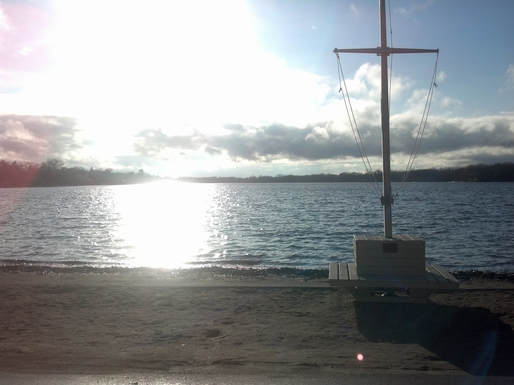
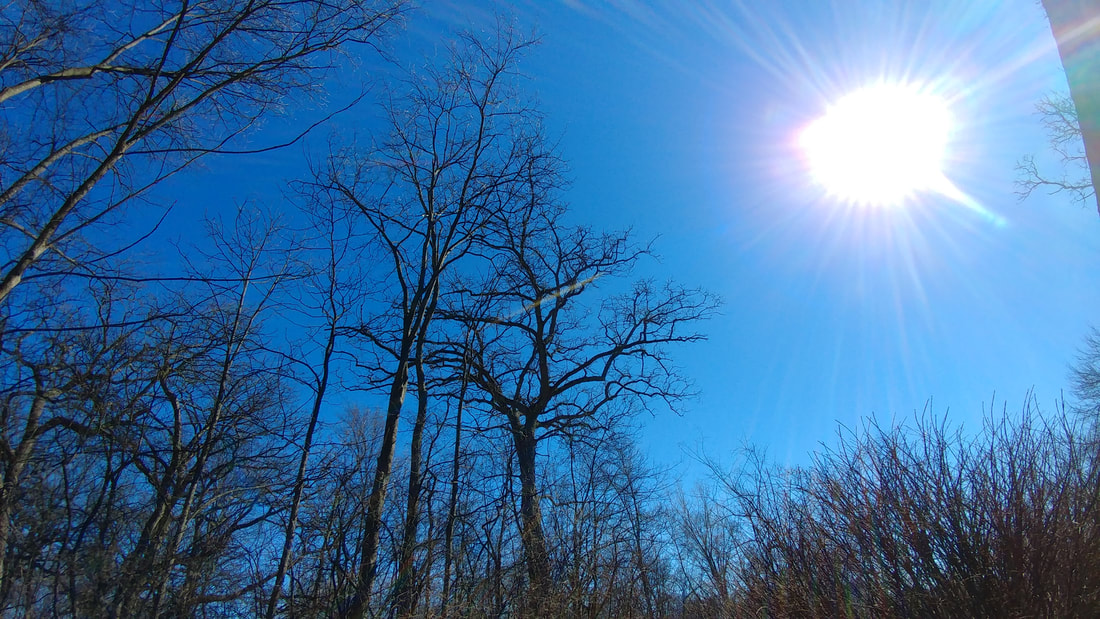
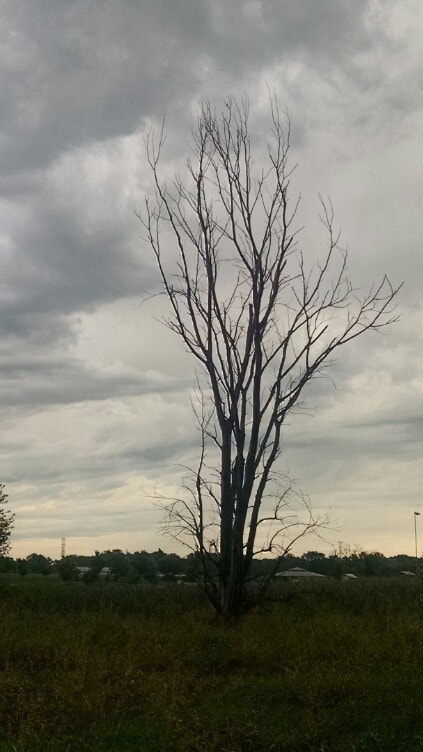
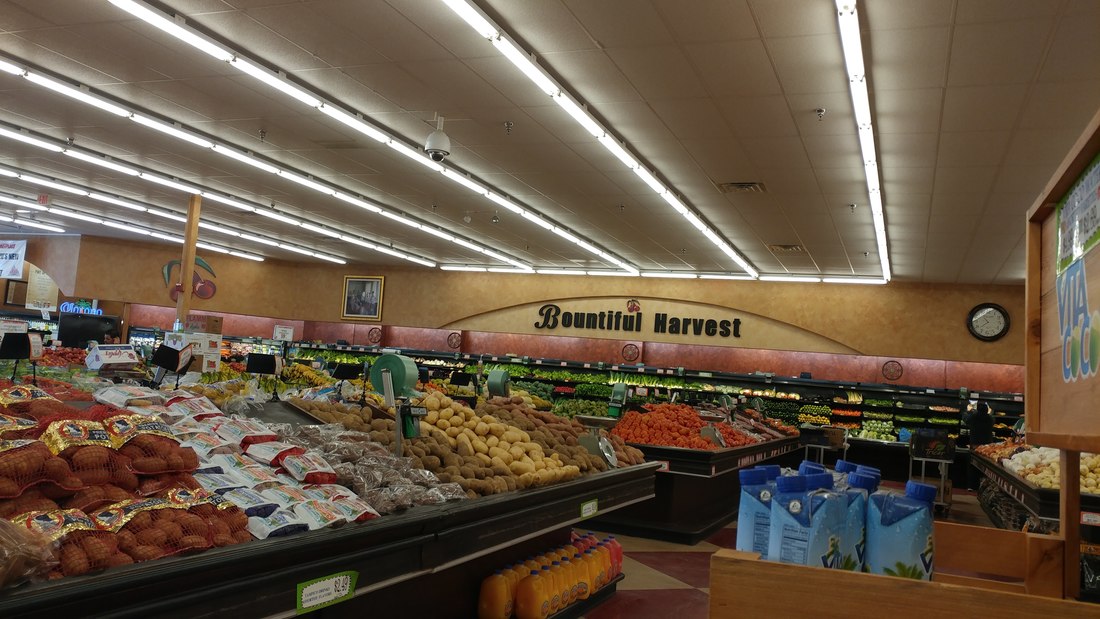

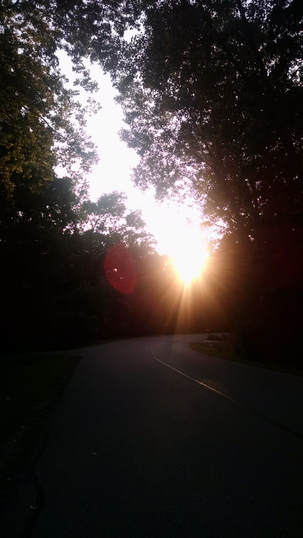
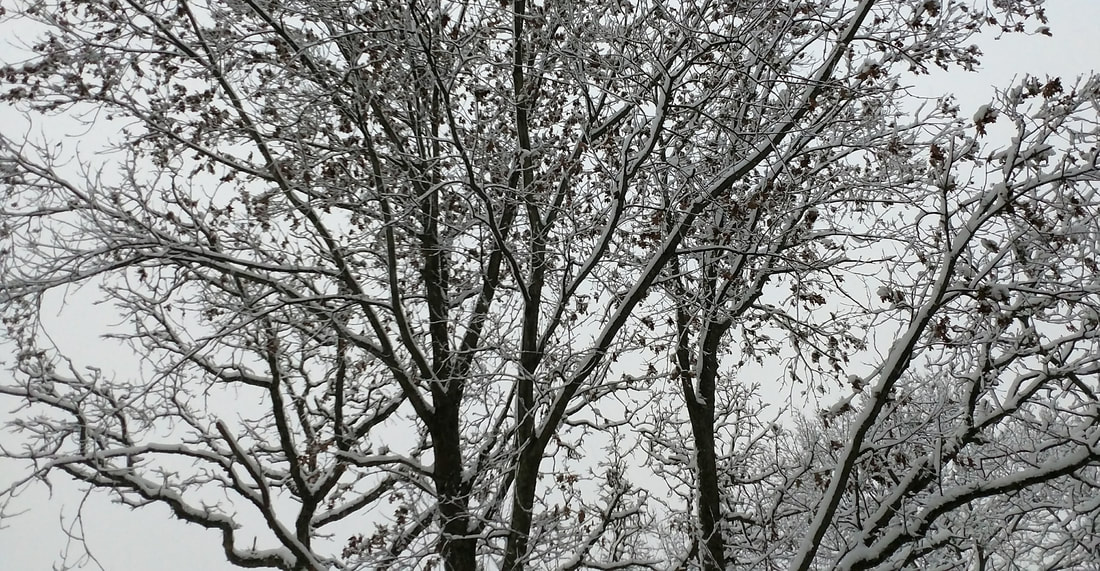


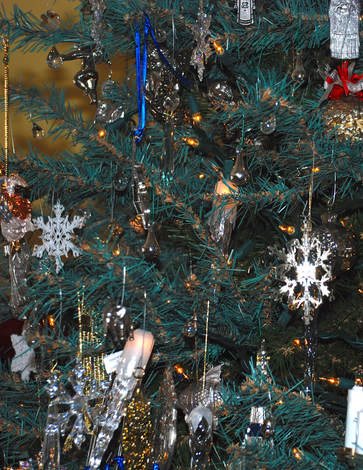
 RSS Feed
RSS Feed